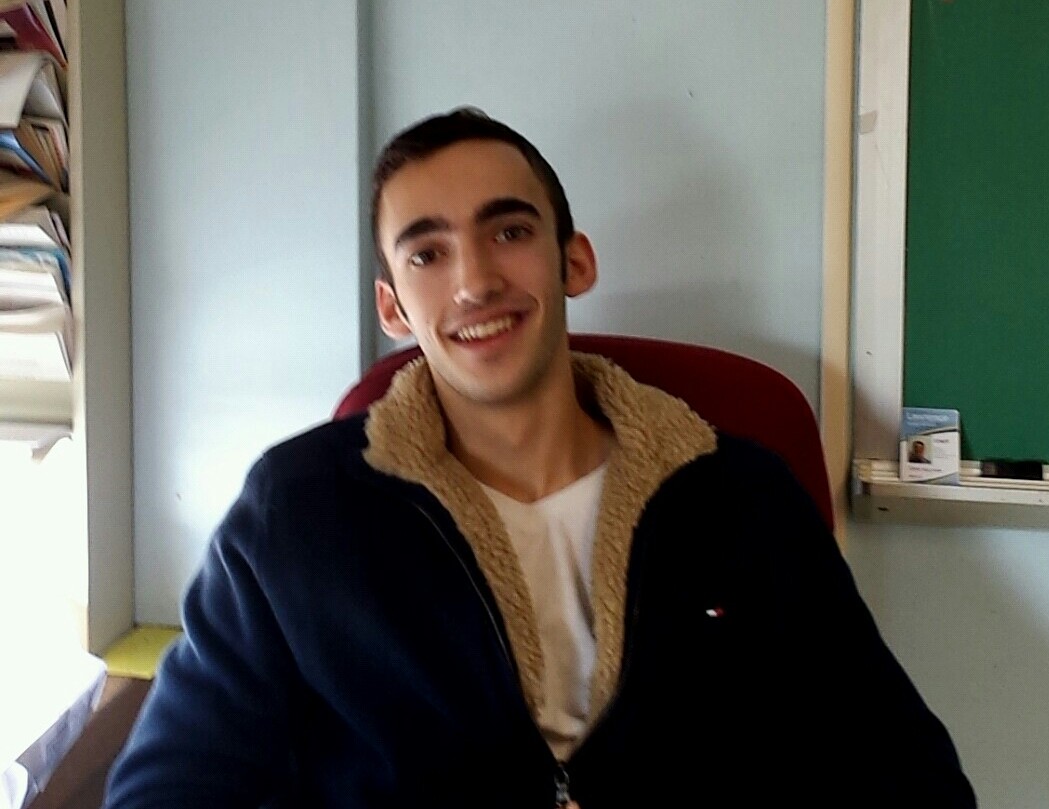Edan Packin named an Intel semifinalist
Study focuses on student cheating
His curiosity peaked by the honor code at Princeton University, the Ivy League school his brother Elon attends, and the SAT cheating scandal that rocked several Long Island high schools in 2011, Edan Packin sought to find out why students cheat.
The Lawrence High School senior did it so well his project is one of the 300 semifinalists of the prestigious Intel Science Talent Search selected from among 1, 794 submissions from 489 high schools in 45 states, the District of Columbia and seven overseas schools.
His achievement comes on the heels of fellow student Krishana Raghubeer being chosen the first high-schooler to present a study to the Eastern Psychology Association “LHS senior earns special honor” (Jan. 9-15). He said he “can’t describe the feeling” but Packin tried. “First of all great pride,” he said, explaining what his selection means to him. “Doing what I can do to curb the problem of cheating.”
Packin’s study “Procrastination and Academic Level as Factors Influencing Academic Integrity” consisted of two components. Experiment I established a powerful link between overall academic dishonesty, but could not isolate a specific procrastination-plagiarism connection.
Experiment No. 2 was focused around what is know as a boggle task that asked the 181 Lawrence High students of varying academic levels to use the letters of nonsense words to form as many real words as possible in 30 seconds. Boggle is a word game played using a plastic grid of lettered dice. Players attempt to find words in sequences of adjacent letters. Based on the Packin’s findings gifted students self-reported scores significantly higher than their actual scores, but only under highly pressurized “unfair” experimental conditions. Average students did not inflate their scores under either condition.
“I didn’t think my AP (Advanced Placement) peers cheated as much as they did,” Packin said, about what surprised him the most about his findings.
He also learned that students send mixed messages about why they do not cheat saying, “I might get caught” or “It is wrong.” That led to him thinking that an honor code could preclude cheating only if more students said it’s wrong to cheat or their peers pressure them not to cheat. But if more students say they don’t cheat because they could get caught or there was no opportunity to cheat then “severe rules, draconian penalties and extra supervision would be order.”
“One of the most interesting findings is that the strongest students seem most likely to cheat when they consider the assignment ‘unfair,’” said Stephen Sullivan, a Lawrence High social studies teacher who served as Packin’s project advisor. “Otherwise these academic stars are similarly or even less likely to cheat or plagiarize.”
Packin like Raghubeer is involved with Model Congress, DECCA the business-oriented club, ran cross-country in the fall and runs spring track, including 800 meters and one- and two-mile events. Last summer he took an economics course at Columbia University furthering his interest in behavioral economics and the social sciences, his likely major in college.
Rebecca Isseroff found Packin’s project interesting and is thrilled he was named a semifinalist. “In my AP Chemistry class, Edan was that type of student that every teacher wishes they had in their class — attentive, studious, focus and motivated,” she said.
Though the numbers suggest that the U.S. has lost ground to other countries when it comes to academic science achievement, Sullivan said that social science is “difficult and sophisticated but completely doable.” His job is to get students enthused about conducting research and other related skills such reading scientific articles or developing surveys can be taught. “Ideally, if students enjoy the process and really care about the answer to the question they posed, the rest will take care of itself,” he said.
From the 300 semifinalists, 40 finalists are invited to Washington, D.C. in March to take part in final judging, publicly exhibiting their work and meeting notable scientists, while competing for the $100,000 grand prize.

 59.0°,
Mostly Cloudy
59.0°,
Mostly Cloudy 




